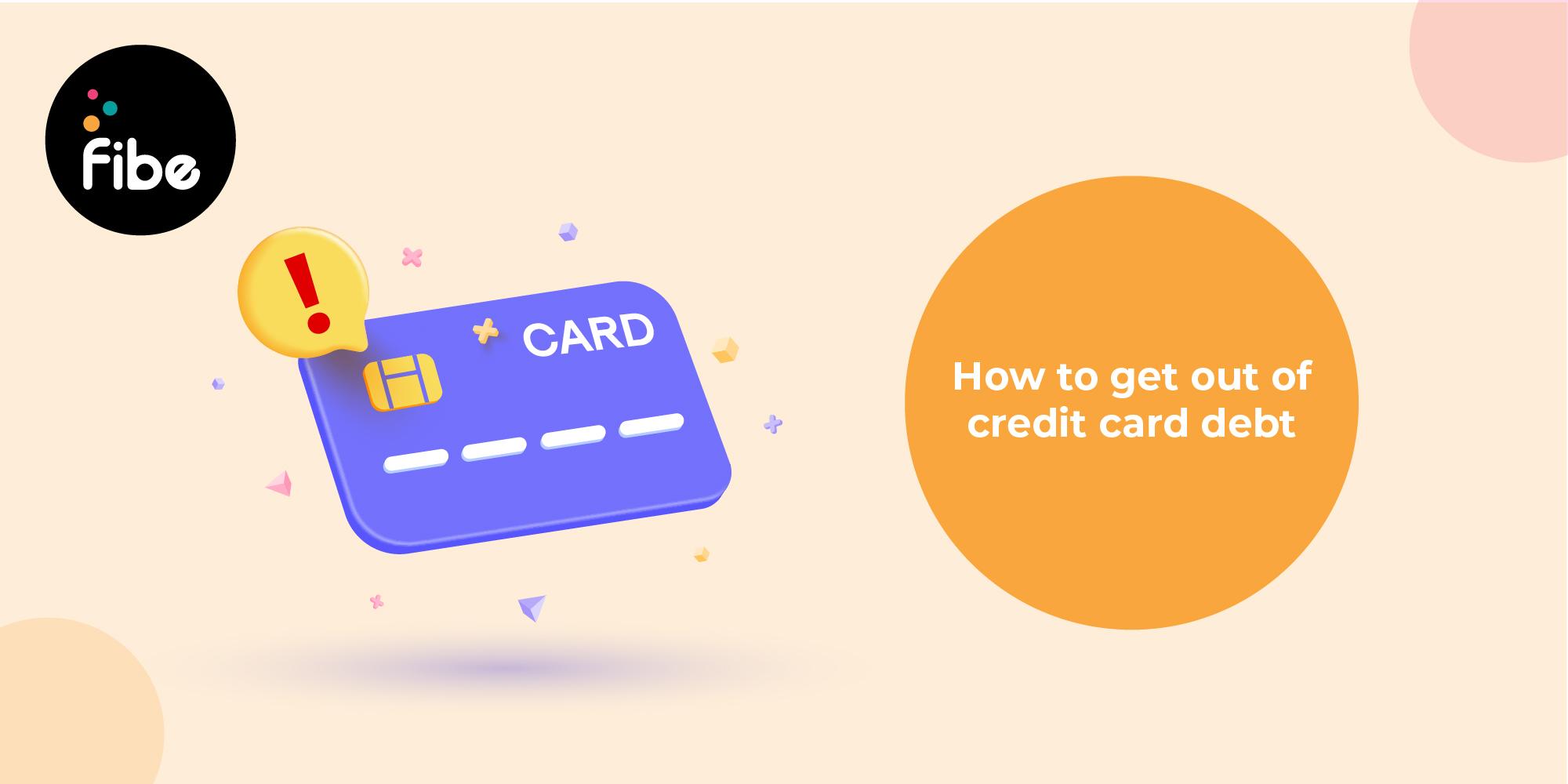- Home
- Blogs
- Credit Card
- What Is Credit Card Debt
What it is Credit Card Debt and How to Pay it
- Updated on: 17 Oct 2024

Credit cards are a great way to access quick credit, but they can also lead to credit card debt if not used responsibly. This is because they generally come with high-interest rates. Thus, they have the potential to push you into debt if you don’t plan repayment efficiently.
To know more about credit card debt, how to pay off this debt and its significance, read on.
Credit card debt is when you use your card limit to purchase an item but fail to repay the bill on time. This results in penalties and interest charges that further increase your outstanding balance, which can push you into a debt cycle.
Apart from understanding what is credit card debt, knowing why you should clear it is just as crucial. All credit card issuers report your dues and transactions related to credit to rating agencies. So, not paying your credit bills on time will negatively affect your credit score and creditworthiness.
Generally, when you fail to repay your debt for 6 months, the issuer will term your account as a default. This allows them to initiate legal proceedings against you. Additionally, they can employ debt collection agents to recover the amount, which can be a challenge to deal with.
Apply For Instant Personal Loan Online
If your credit card dues are accumulating, here are some tips on how to clear credit card debt:
If you are already in debt, avoid making another purchase using your credit card or taking a loan. Instead, try and use the card only during emergencies. This will help you avoid adding more to your balance.
If you have multiple debt accounts, there are three approaches you can follow to pay off your dues. These include:
A simple yet effective strategy to pay off your outstanding balance is to create a budget. You need to assess a few things, such as
Once you have all this information at hand, understand your crucial obligations and postpone any unnecessary expenses to save towards debt repayment. Stick to this budget to repay consistently.
Also Read: Learn To Use Credit Card Responsibly
The interest rates associated with credit cards are generally on the higher side. Conversely, personal loans have much lower interest rates. As such, getting a personal loan for debt consolidation to clear multiple credit card dues can be an ideal option. This way, you can significantly reduce the cost of borrowing and streamline the repayment process to better fit your budget.
Now that you know all about debt on credit cards, use your card wisely and also choose the right card to save on every swipe. To earn exciting rewards on every transaction, you can bank on the Fibe Axis Bank Credit Card. It is a lifetime-free credit card, with no joining and annual fees. Moreover, it lets you enjoy up to 3% cashback benefits on all your spends.
A RuPay credit card, it offers you the facility to link it with a third-party UPI application for safe and secure transactions. Download the Fibe App or log in to our website to apply for this credit card and enjoy exciting discounts and offers!
You can adopt key strategies to clear your debt, the first one being planning repayment by creating a budget and sticking to it. It is also imperative to avoid taking another loan unless it is for consolidation. You should also decide on your repayment strategy based on your finances to quickly settle your debt.
If you don’t pay your credit card bill for an extended period, your credit score will keep on falling. Moreover, the issuer will term your account as default. They may also take legal action against you and employ debt collection agents to recover the due amount.
Yes, you can contact the issuer to settle your credit card debt. However, this can negatively impact your credit score. So, be sure to weigh all the options before choosing a settlement.